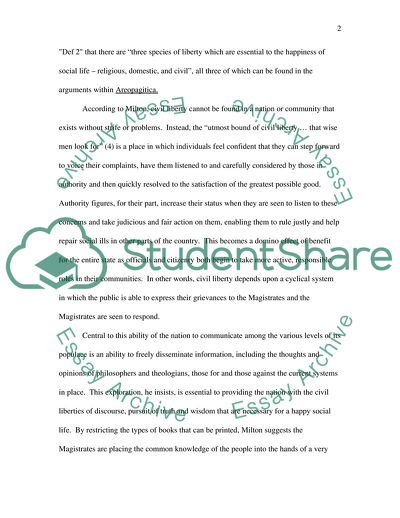Cite this document
(The Order in the Name of Liberty Literature review, n.d.)
The Order in the Name of Liberty Literature review. Retrieved from https://studentshare.org/sociology/1703805-john-milton-writes-in-def-2-that-there-are-three-species-of-liberty-which-are-essential-to-the-happiness-of-social-life-religious-domestic-and-civil-pp
The Order in the Name of Liberty Literature review. Retrieved from https://studentshare.org/sociology/1703805-john-milton-writes-in-def-2-that-there-are-three-species-of-liberty-which-are-essential-to-the-happiness-of-social-life-religious-domestic-and-civil-pp
(The Order in the Name of Liberty Literature Review)
The Order in the Name of Liberty Literature Review. https://studentshare.org/sociology/1703805-john-milton-writes-in-def-2-that-there-are-three-species-of-liberty-which-are-essential-to-the-happiness-of-social-life-religious-domestic-and-civil-pp.
The Order in the Name of Liberty Literature Review. https://studentshare.org/sociology/1703805-john-milton-writes-in-def-2-that-there-are-three-species-of-liberty-which-are-essential-to-the-happiness-of-social-life-religious-domestic-and-civil-pp.
“The Order in the Name of Liberty Literature Review”. https://studentshare.org/sociology/1703805-john-milton-writes-in-def-2-that-there-are-three-species-of-liberty-which-are-essential-to-the-happiness-of-social-life-religious-domestic-and-civil-pp.


